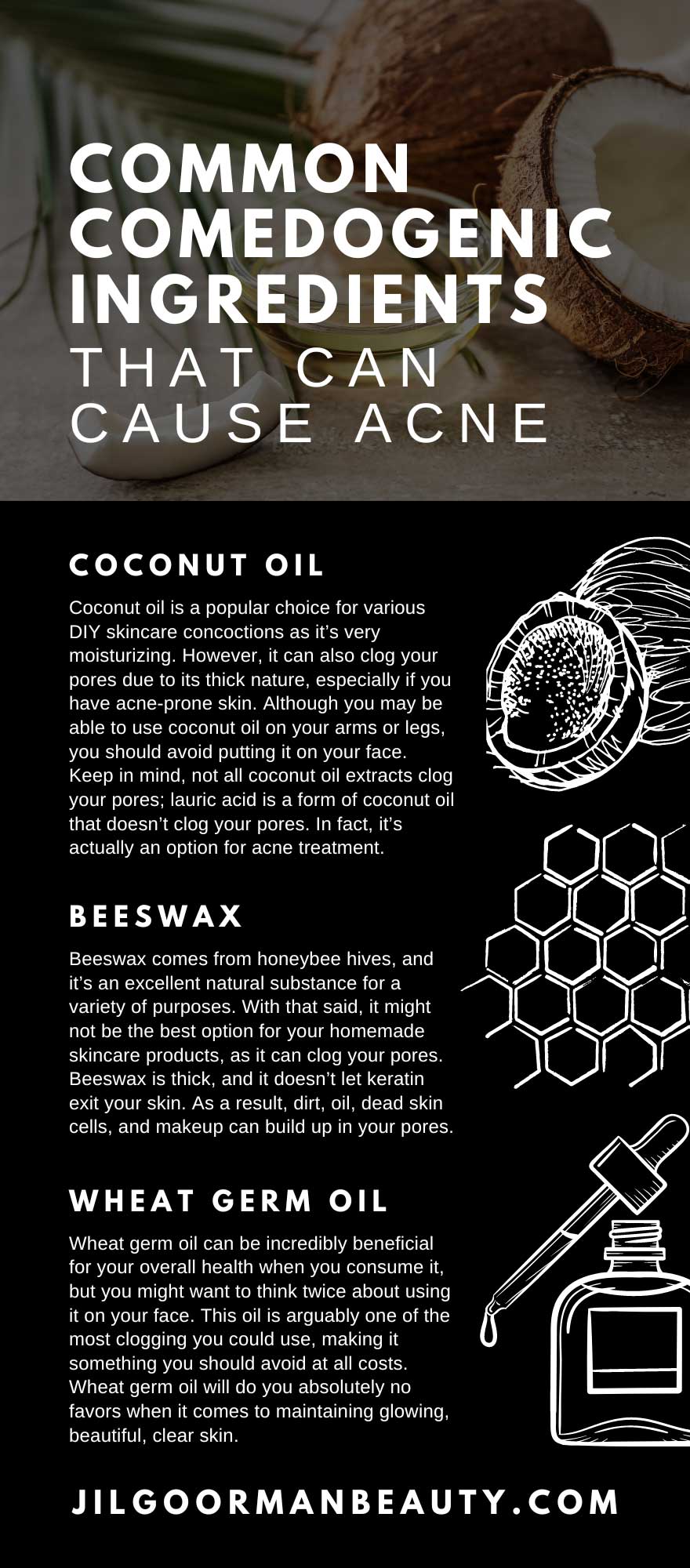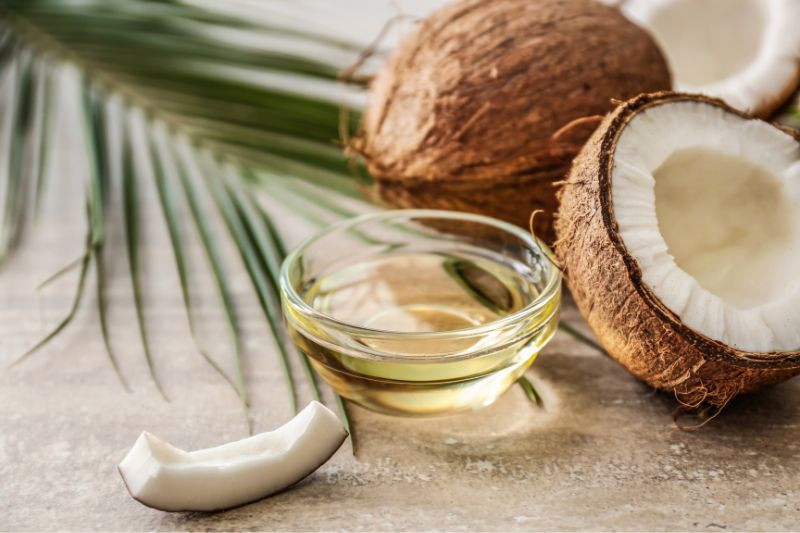Many people suffer from acne, but they may not know what causes it. In truth, it’s likely your makeup and skincare products are the main culprits behind your untimely breakouts. Whether you struggle with chronic acne or the occasional pimple, you should be careful about the products you apply to your skin. Even though these 10 common comedogenic ingredients can cause acne, beauty manufacturers continue to use them in their formulas. Read on to learn more about these ingredients and whether or not you need to avoid them.
What Does Comedogenic Actually Mean?
If you have acne, you may have heard the terms comedogenic and non-comedogenic. Either way, very few acne-prone individuals have extensive knowledge of the meanings of these terms and the ingredients they encompass. Comedogenic refers to ingredients or products that have the potential to clog your pores and cause acne as a result.
Many people who experience acne use products containing these pore-clogging ingredients without even knowing what their products contain. Even if you use one product once, it can still cause issues for your skin; therefore, you should always check the ingredient lists on your products and refrain from using your friends’ products.
Follow along to learn more about 10 of the most common comedogenic ingredients to avoid them and maintain beautiful, clear skin.
Cocoa Butter
Cocoa butter works wonders on dry skin, but it may not be the ideal product to use on your face or in other areas where you tend to break out. Because this substance is so thick, it prevents oxygen from entering your pores. Many use cocoa butter to remove their makeup, but it can lead to unwanted acne—be sure to follow up with a cleanser immediately to ensure your pores stay clean and clear.
Coconut Oil
Coconut oil is a popular choice for various DIY skincare concoctions as it’s very moisturizing. However, it can also clog your pores due to its thick nature, especially if you have acne-prone skin. Although you may be able to use coconut oil on your arms or legs, you should avoid putting it on your face. Keep in mind, not all coconut oil extracts clog your pores; lauric acid is a form of coconut oil that doesn’t clog your pores. In fact, it’s actually an option for acne treatment.
Beeswax
Beeswax comes from honeybee hives, and it’s an excellent natural substance for a variety of purposes. With that said, it might not be the best option for your homemade skincare products, as it can clog your pores. Beeswax is thick, and it doesn’t let keratin exit your skin. As a result, dirt, oil, dead skin cells, and makeup can build up in your pores.
Stearic Acid
Stearic acid is a common ingredient in high-end foundation formulations, but you should consider saving money and your skin by skipping those products. Although this ingredient may not be the most clogging—and it might not irritate your skin at all—it’s still worth putting on the list to avoid for those with sensitive or acne-prone skin.
Red Pigments
It’s no secret that red dyes can cause inflammation and other issues in your body, and the same is true for your skin. Makeup manufacturers tend to put red dyes in blush and lipstick formulas to achieve those bright pigments we all know and love. Although you might adore those products with shades of red, you should be aware of their potential to clog your pores and cause acne. If you use products with red pigments, be sure to cleanse your face thoroughly to ensure your pores are clean.
Wheat Germ Oil
Wheat germ oil can be incredibly beneficial for your overall health when you consume it, but you might want to think twice about using it on your face. This oil is arguably one of the most clogging you could use, making it something you should avoid at all costs. Wheat germ oil will do you absolutely no favors when it comes to maintaining glowing, beautiful, clear skin.
Algae Extract
Although algae extract may seem like a healthy ingredient in your skincare products, it’s not an ideal choice for your face. This ingredient can penetrate deeply and cause issues below your skin’s surface, which can lead to unwanted breakouts within a few days or weeks of use. You may find algae extract in the formulas of various concealers, and you should avoid these products whenever possible.
Sodium Chloride
Sodium chloride is another name for table salt. Even though you may think salt would be an excellent exfoliant, it can wreak havoc on your skin. Believe it or not, you could find sodium chloride in your foundation formula, which can severely clog your pores. Salt is usually harmless, but it’s quite the opposite when it comes to skincare. Ideally, you should consider using acne-safe makeup instead of products containing this seemingly innocent ingredient.
Benzaldehyde
Benzaldehyde provides a nice fragrance for your products, but it may disrupt your skin, as many artificial fragrances do. Skincare and makeup products can still have hidden fragrances even if they state they are fragrance-free or you don’t see them directly on the ingredient list. Avoid artificial fragrances and opt for natural extracts; after all, they smell much more natural and fresh.
Acetylated Lanolin
Interestingly, lanolin is a natural substance sheep’s bodies produce to keep their wool soft. Many beauty manufacturers use lanolin to create soft and moisturizing products, which can cause issues for your skin. Because it’s a thick material, lanolin can clog your skin quite easily. Lanolin may have various names when it comes to ingredient labels, so you should look out for all of its different forms, including acetylated lanolin.
Now that you know more about these 10 common comedogenic ingredients that can cause acne, you should be more cautious about the products you buy—especially if you want to limit your chances of developing acne. You should know that this is not a complete list, and there are many other ingredients with the potential to clog your skin. Be your own best advocate by understanding the ingredients that cause issues for your skin, as not all products impact everyone the same way.


